Planning Pays Off: 5 Strategies to Get the Most Out of Your Delivery Speed Choice
April 17, 2025
5 min read
Bulk Shipping Vs Normal Shipping – What’s Right For Your Business
Selecting the best shipping option is essential for business owners looking to maximize efficiency and reduce expenses. Depending on your demands, the two main options—bulk shipping and normal shipment—offer varying advantages.
Bulk shipping is the process of carriage of goods in volumes without packages designed for each item. Therefore, high-volume carriage of commodities is economically viable.
Regular shipping refers to the process of loading and carrying cargo in curtained trucks designed for that purpose, with each item separately packed. This method is suitable for low-volume or heterogeneous shipments.
In this article, we will analyze the advantages and disadvantages of both alternatives so that you can decide which best suits your company.
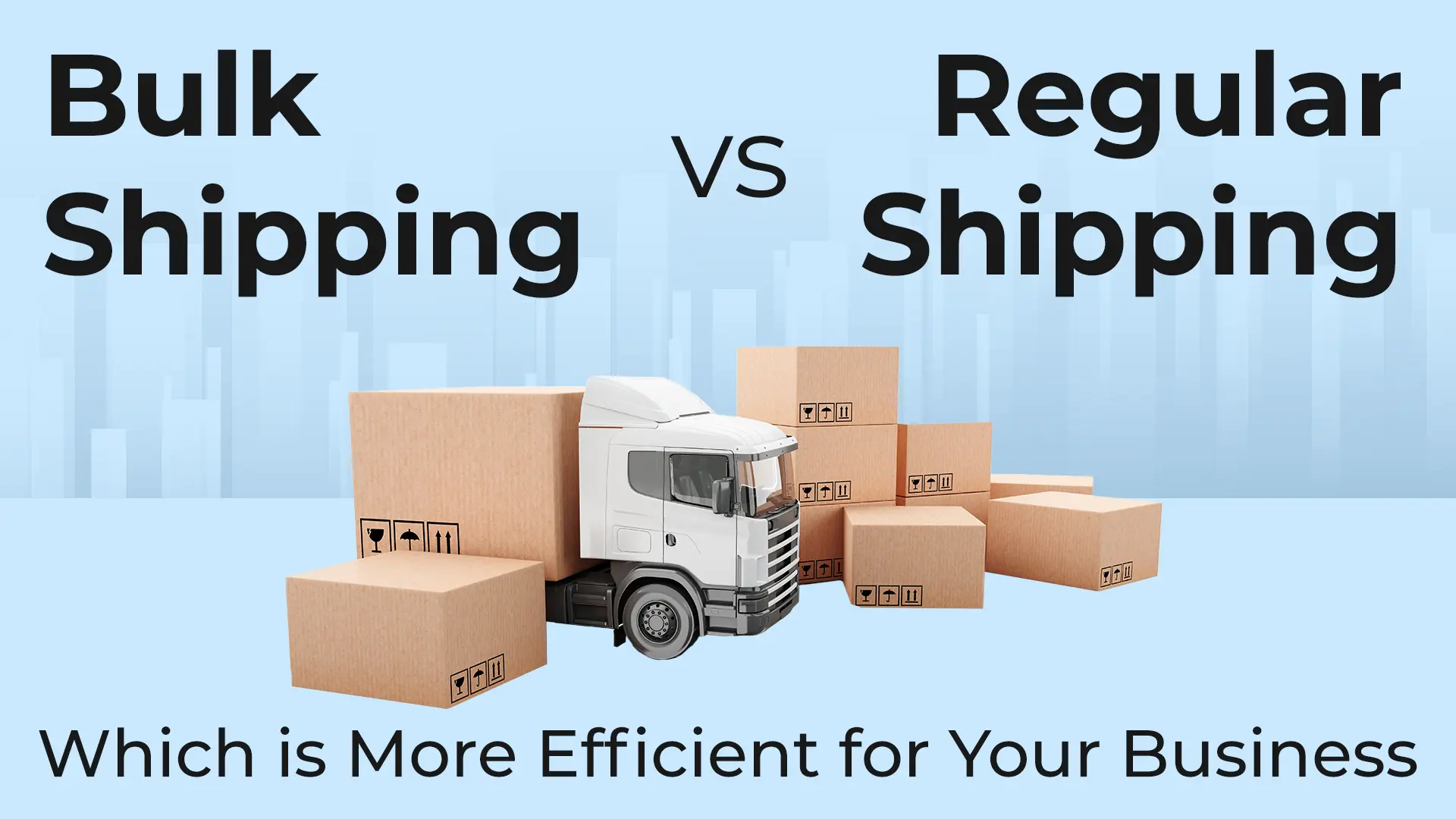
Which Is Better: Bulk Shipping or Regular Shipping?
Here’s a breakdown of different factors that can help you decide which shipping method aligns with your business needs:
Cost Effectiveness
Bulk shipping is typically cheaper than regular shipping on a per-unit basis because it carries large quantities at once, skips individual packaging, and fully uses the ship’s cargo space.
In fact, bulk transport vehicles are designed specially for handling huge cargo loads. This makes them the most efficient way of transporting dry and liquid goods over long distances.
Also, with no individual packaging, additional costs that you would have incurred there are cancelled out. This reduction in cost will also give you a much-required competitive advantage.
Large Inventories
When you choose bulk shipping, you can have multiple quantities of goods on hand, which will help you avoid downtime and thus speed up your processes.
This will make your business operations more profitable while keeping you safe from the risks of supply chain disruptions. Thus, bulk carrier shipping companies will help you with inventory management and meeting customer demands.
Also, when large quantities of goods are delivered at once, you do not have to spend on taxes and other resources that you would have required with regular shipping.
Economies of Scale
With bulk shipping, you can benefit from economies of scale. By combining multiple shipments into one bulk transport, you can reduce the shipping costs of each item.
This will help you a lot if you are a small business owner and thus lack the leverage to negotiate the rates on your own. Additionally, you will also be saved from the repeated hassles of custom clearance, as it will all get streamlined.
In fact, bulk carriers tend to have larger shipments, which means that they will be prioritized at customs. This will help reduce the risk of delayed shipments while also improving overall delivery times.
Specialized Loading and Unloading
Bulk carrier shipping companies frequently employ specialized equipment and skilled workers to handle the loading and unloading of large shipments. Additionally, they adhere to particular procedures designed to manage different kinds of cargo, such as bulky, heavy, and delicate items.
Even though you pay for the same services, regular shipping companies are unlikely to be as well-prepared to handle your shipment.
Wrapping Up
Regardless of the size of your business, opting for bulk shipping as opposed to regular shipping services can prove beneficial. It facilitates smooth processes and increases revenues and, hence, sales.
You can obtain affordable bulk shipping with Shipyaari’s logistics solutions, which also offer proactive customer service, real-time tracking, and an extensive shipment management dashboard.
Additionally, Shipyaari’s AI-driven recommendations and vast reach make it easier for businesses to optimize their shipping strategies, stay ahead of delivery timelines, and scale their operations seamlessly.
Frequently Asked Questions
Since they frequently need to transfer huge amounts of goods, industries such as manufacturing, wholesale distribution, and retail benefit most from bulk shipping.
As bulk transport involves fewer journeys and produces fewer pollutants per ton-kilometer of transported cargo, it is often, though not always, thought to be more environmentally benign than traditional transport.
Regular shipping can lead to higher per-unit costs, increased risk of stockouts, and potential delays if shipments are not efficiently managed.
Key factors to consider when choosing between bulk and regular shipping are storage space, demand consistency, shipping costs, order frequency, cash flow, and delivery timelines.
Suggested Reads
Hyperlocal Personalization: Tailoring Experiences for Local Customers
Introduction The eCommerce industry in India has witnessed a rapid growth of hyperlocal services in
Continue ReadingDec






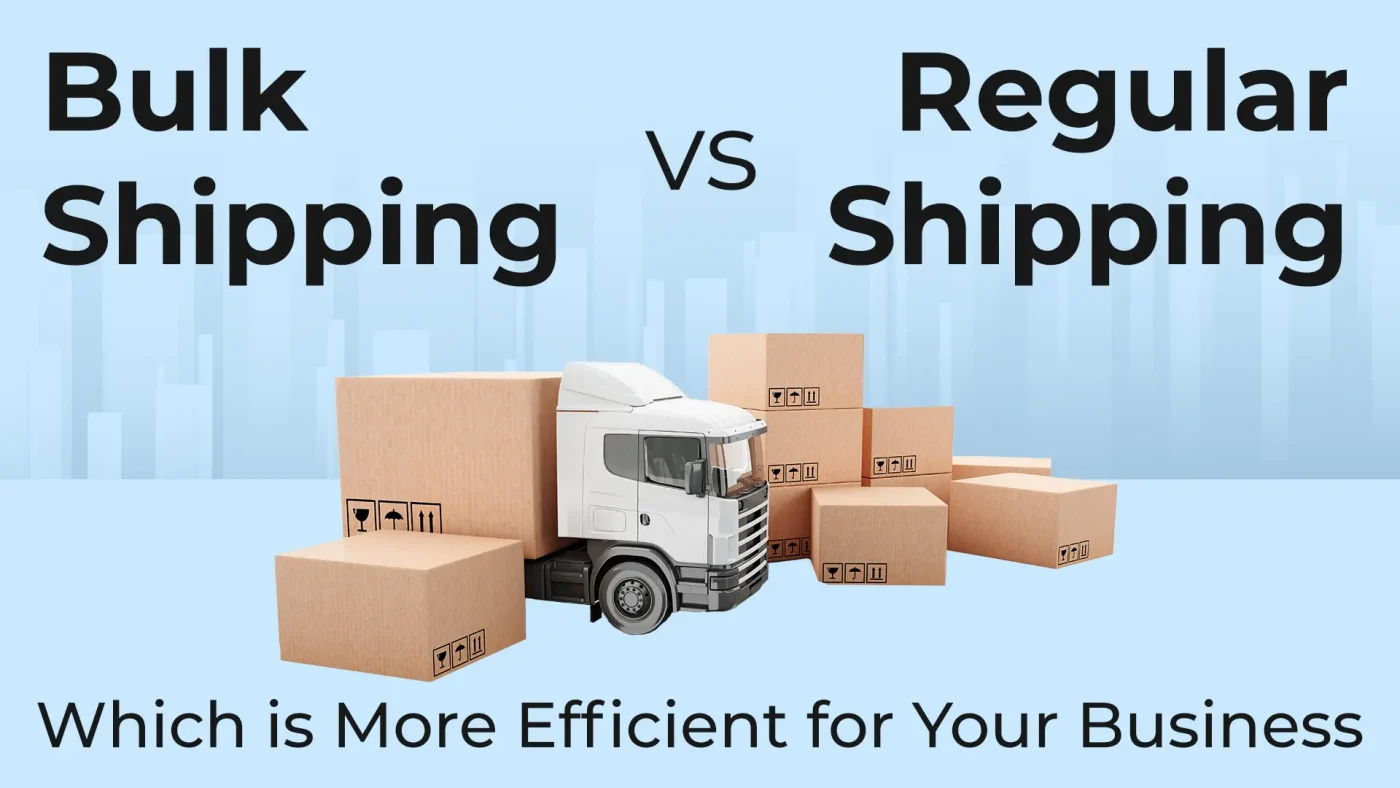



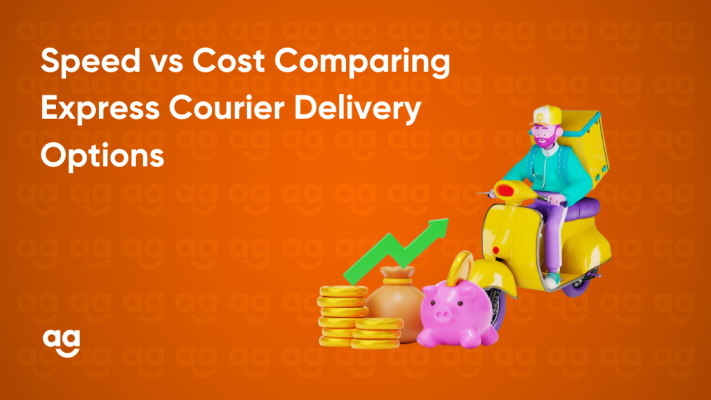

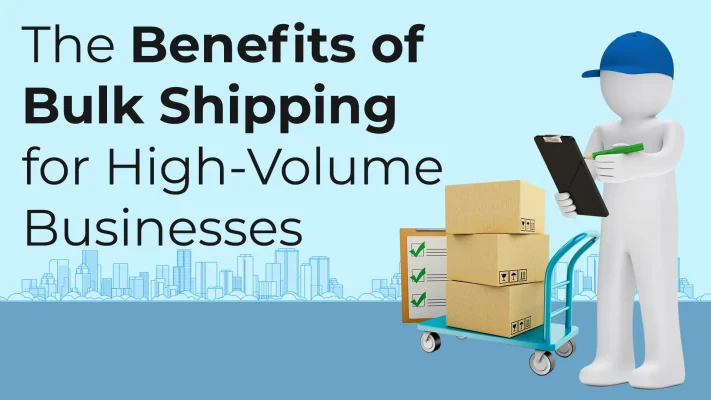
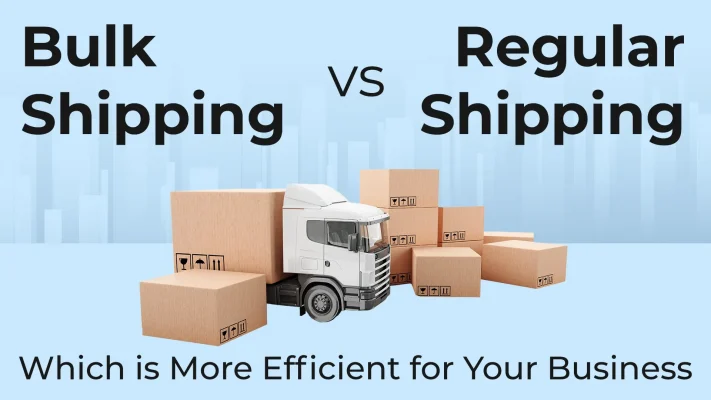





 Shipping
Shipping







